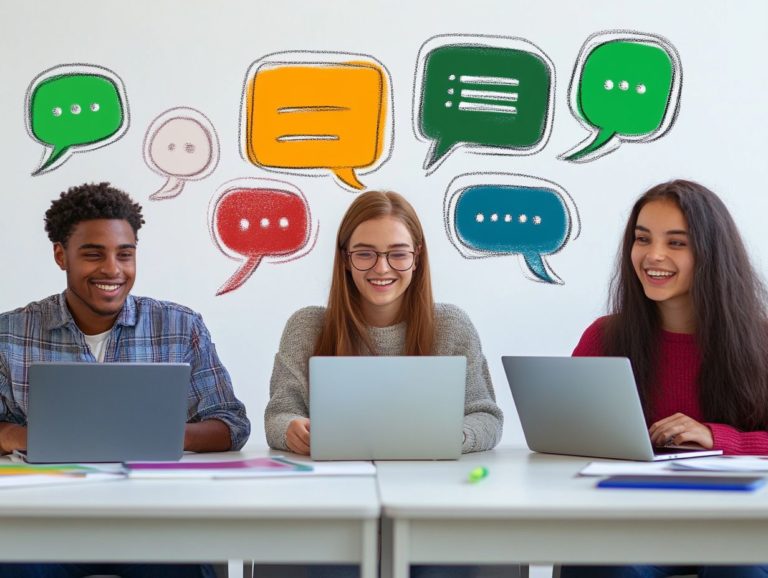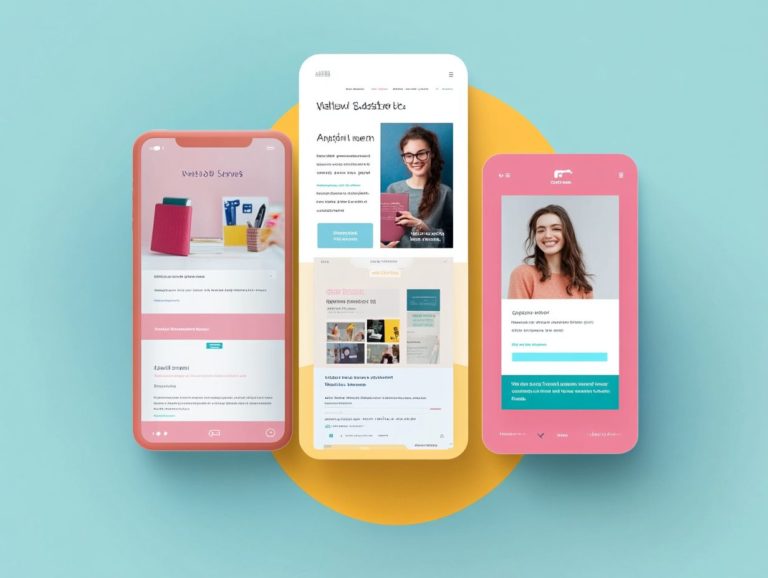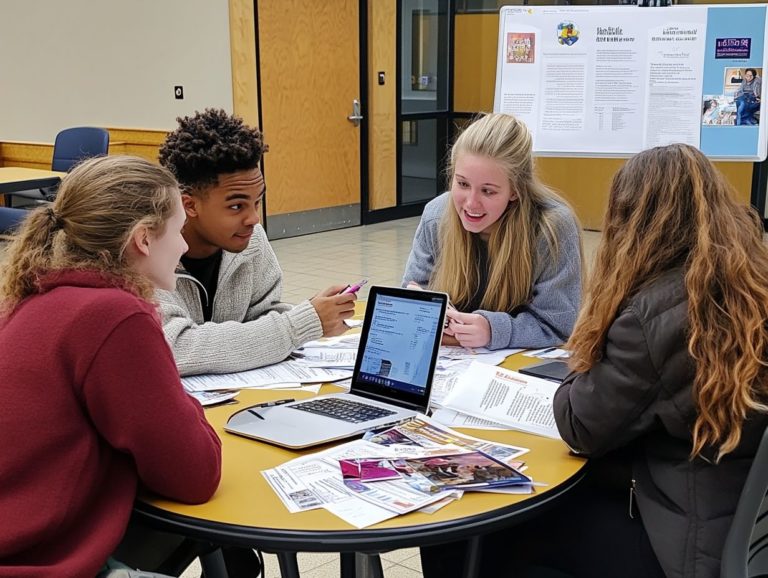6 Essential Tips for Financial Aid Interviews
Navigating the financial aid process can feel overwhelming, particularly when it comes to interviews. However, with effective preparation, you can greatly enhance your chances of securing the support essential for your education.
This article presents six crucial tips designed to help you excel in your financial aid interview. From grasping your school s financial aid policies to dressing professionally and showcasing your accomplishments, these insights will serve as your roadmap.
You will also find answers to common questions and a clear outline of the next steps to take after your interview. Dive in and position yourself for success!
Contents
- Key Takeaways:
- 1. Research the School’s Financial Aid Policies
- 2. Prepare Your Documents
- 3. Practice Common Interview Questions
- 4. Dress and Act Professionally
- 5. Highlight Your Achievements and Financial Need
- 6. Ask Questions and Follow Up
- What Is a Financial Aid Interview and Why Is It Important?
- What Are the Common Questions Asked in a Financial Aid Interview?
- What Are the Dos and Don’ts of a Financial Aid Interview?
- How Can a Student Make a Good Impression During the Interview?
- What Are the Possible Outcomes of a Financial Aid Interview?
- What Are the Next Steps After a Financial Aid Interview?
- Frequently Asked Questions
- What are six essential tips for your financial aid interview?
- How can I prepare for a financial aid interview?
- Why is dressing professionally important for a financial aid interview?
- Is it important to practice beforehand for a financial aid interview?
- Should I be honest during a financial aid interview?
- What kind of questions should I ask during a financial aid interview?
Key Takeaways:
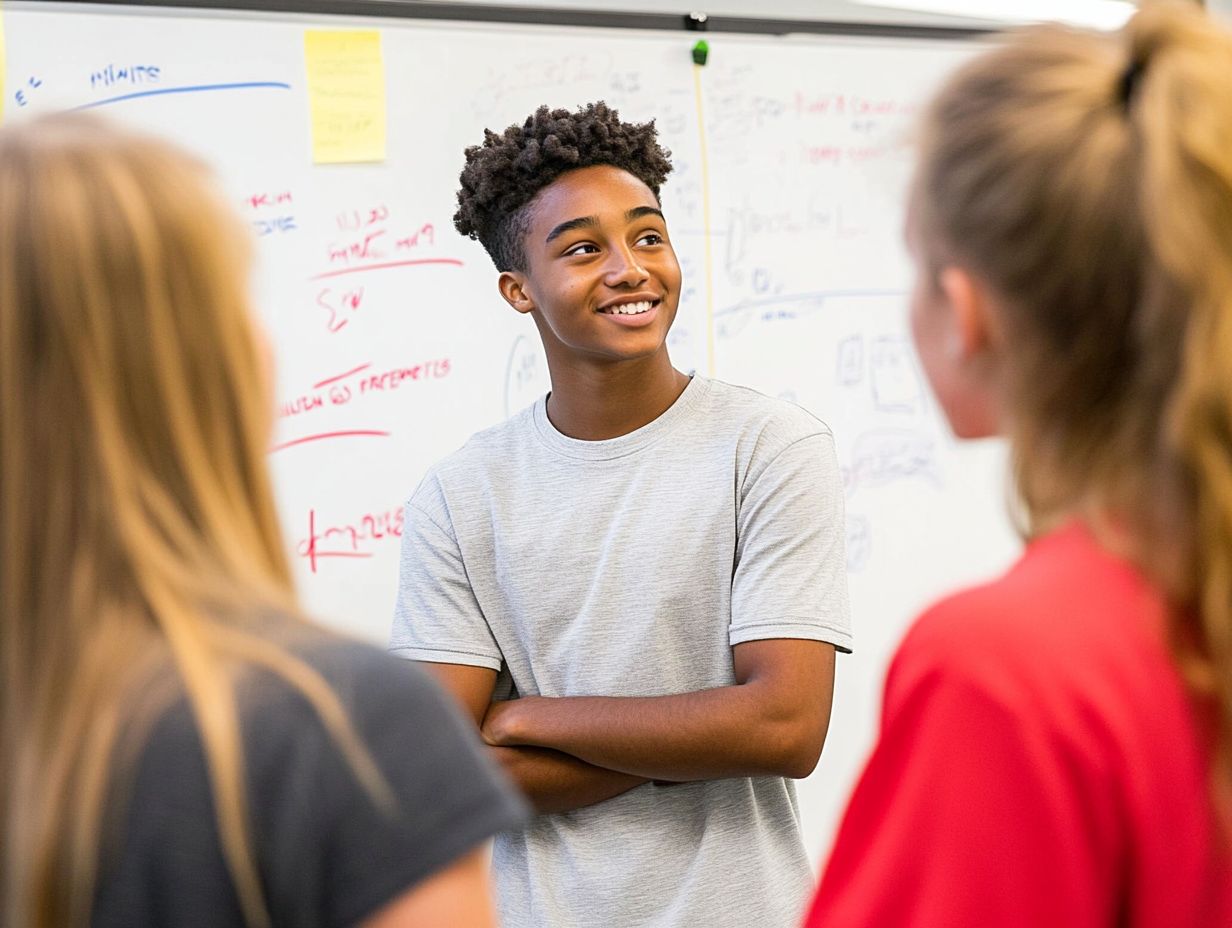
- Research the school’s financial aid policies to understand what type of aid is available and how to apply for it.
- Prepare your documents ahead of time to make the interview process smoother.
- Practice common interview questions to feel more confident and articulate during the interview.
1. Research the School’s Financial Aid Policies
Get ready to embark on your scholarship interview journey! Discover how financial aid policies can shape your future.
Understanding these policies can dramatically impact your scholarship application process and future funding options, including grants, loans, and scholarships like those offered by Bold.org especially if you’re applying from places like Overland Park, Kansas.
Understanding the various types of financial aid available federal, state, and institutional can significantly enhance your approach to funding your education.
- Federal financial aid often includes Pell Grants and Stafford Loans. Grants and scholarships are funds you don t have to pay back, while loans are borrowed money that you must repay.
- State aid may provide additional support based on your residency.
- Institutional aid, coming directly from the college or university, can vary greatly from one institution to another, making it crucial for you to familiarize yourself with specific school policies.
Completing the FAFSA (Free Application for Federal Student Aid) application is a critical step in this process, as it unlocks a multitude of financial opportunities. Each school has its own guidelines and deadlines, so gaining a thorough understanding will equip you to navigate the funding landscape with confidence.
2. Prepare Your Documents
Carefully prepare your documents, as this is a crucial step in the scholarship interview process. Organized and comprehensive records of your personal achievements can significantly enhance your chances of impressing scholarship providers.
Start by gathering essential documents, such as academic transcripts, which offer valuable insights into your educational journey.
Include curated letters of recommendation from mentors who can vouch for your character and capabilities.
A well-crafted personal statement is vital; it allows you to share your unique story and illustrate how your experiences have shaped your aspirations. Highlight not only your academic successes but also your involvement in community service and leadership roles.
This showcases your commitment to making a positive impact beyond the classroom and adds depth to your candidacy.
3. Practice Common Interview Questions
Practicing common scholarship interview questions is essential for your success. It allows you to articulate genuine answers while confidently preparing for those tricky inquiries that interviewers might throw your way.
Take, for instance, the ever-popular question, “Why do you deserve this scholarship?” Crafting a thoughtful response that underscores your personal achievements, growth experiences, or future aspirations is crucial. Having specific examples ready can enhance your credibility significantly.
To improve your verbal communication and calm those pre-interview jitters, engaging in mock interviews with peers or mentors can be incredibly beneficial. This practice enables you to refine your responses, gain constructive feedback, and acclimate to the interview setting, ultimately fostering a sense of confidence that will shine through in your presentation.
4. Dress and Act Professionally
Dressing and acting professionally during your scholarship interview can make a huge impact. When you wear appropriate professional attire, maintain a positive attitude, and offer a firm handshake, you showcase your dedication and suitability as the ideal candidate.
Non-verbal cues are equally important in communication. For example, maintaining eye contact shows you are confident and interested, while a relaxed yet alert posture portrays attentiveness and openness.
Think about your interview’s context! A conservative business suit may be perfect for formal academic scholarships, while a smart-casual outfit might be more suitable for creative programs.
By adapting to the expected dress code, you not only demonstrate awareness but also reflect your respect for the interview process.
5. Highlight Your Achievements and Financial Need

During your scholarship interview, effectively highlighting your achievements while clearly stating your financial need is essential. Scholarship providers seek candidates who excel academically and exhibit leadership experience and a strong commitment to community service.
The ability to weave narratives that showcase your personal growth and significant contributions can truly set you apart. Using storytelling techniques, you can illustrate key moments that reflect your resilience and dedication, such as overcoming obstacles or initiating impactful projects in your community.
When discussing your financial needs, approaching the topic with honesty and respect is crucial. Frame your need within your broader narrative, emphasizing how this scholarship will serve as vital support for your long-term goals and your continued contributions to society.
6. Ask Questions and Follow Up
Asking insightful questions during your scholarship interview shows your genuine interest in the program and gives you a chance to clarify important details.
Following up with a thoughtful thank-you note to the scholarship providers beautifully reinforces that interest. Consider asking about the selection criteria, opportunities for mentorship, or how previous scholars have benefited from the program.
Such questions highlight your engagement and desire to align your personal goals with the scholarship’s mission. Don t underestimate the significance of follow-up communication; it reflects professionalism and underscores your commitment.
A well-crafted thank-you note expressing gratitude for the interviewer s time and insights can create a lasting positive impression, helping you stand out in a competitive field. This small act of appreciation plays a crucial role in building a meaningful relationship with the scholarship committee.
Don t wait start drafting that thank-you note today!
What Is a Financial Aid Interview and Why Is It Important?
A financial aid interview is an essential part of the scholarship application process. It provides you with the opportunity to articulate your qualifications, financial needs, and personal stories. This interaction offers scholarship providers a deeper understanding of why you deserve financial aid for college, including grants and loans often associated with FAFSA applications and various scholarships.
During these interviews, scholarship providers aim to evaluate your motivation, character, and personal circumstances. They seek authenticity and a clear demonstration of your financial need, along with your ambition and commitment to academic success.
By sharing your personal stories, you can vividly illustrate the challenges you’ve faced and your aspirations. Crafting a compelling narrative goes beyond the numbers on a form. This storytelling element is crucial, as it can significantly influence decision-makers, showcasing not only your need for assistance but also the profound impact that financial aid could have on your academic journey and future career.
What Are the Common Questions Asked in a Financial Aid Interview?
Common questions during financial aid interviews often focus on your academic achievements, financial need, and personal aspirations. Interviewers aim to assess your suitability for the scholarship and how it aligns with your future goals.
For example, they might ask about specific challenges you’ve faced while balancing work and studies or how your leadership roles in school clubs have shaped your perspective. Structure your answers using the STAR method a way to describe the Situation, Task, Action, and Result to clearly convey your experiences.
Sharing a personal story about a community project where you organized a fundraiser can highlight your commitment to societal growth and demonstrate how it impacted your development as a leader.
Ultimately, showing how your goals align with community needs can leave a lasting impression on interviewers!
What Are the Dos and Don’ts of a Financial Aid Interview?
Knowing what to do and what not to do can help you succeed in your financial aid interview. Important things to do include being prepared and dressing appropriately, while the don’ts revolve around being unprepared or showing negativity.
You should practice looking at the person you re talking to and showing genuine enthusiasm throughout the conversation. For instance, when you respond to questions, nodding and smiling can effectively convey your engagement, while sitting up straight showcases your confidence.
Conversely, steer clear of discussing politics or any controversial topics, as these can create unnecessary tension. Being overly casual such as using slang or dressing too informally can undermine your professionalism.
Instead, consider using specific examples from your past experiences to illustrate your financial needs and future goals, making the conversation more relatable and compelling.
How Can a Student Make a Good Impression During the Interview?
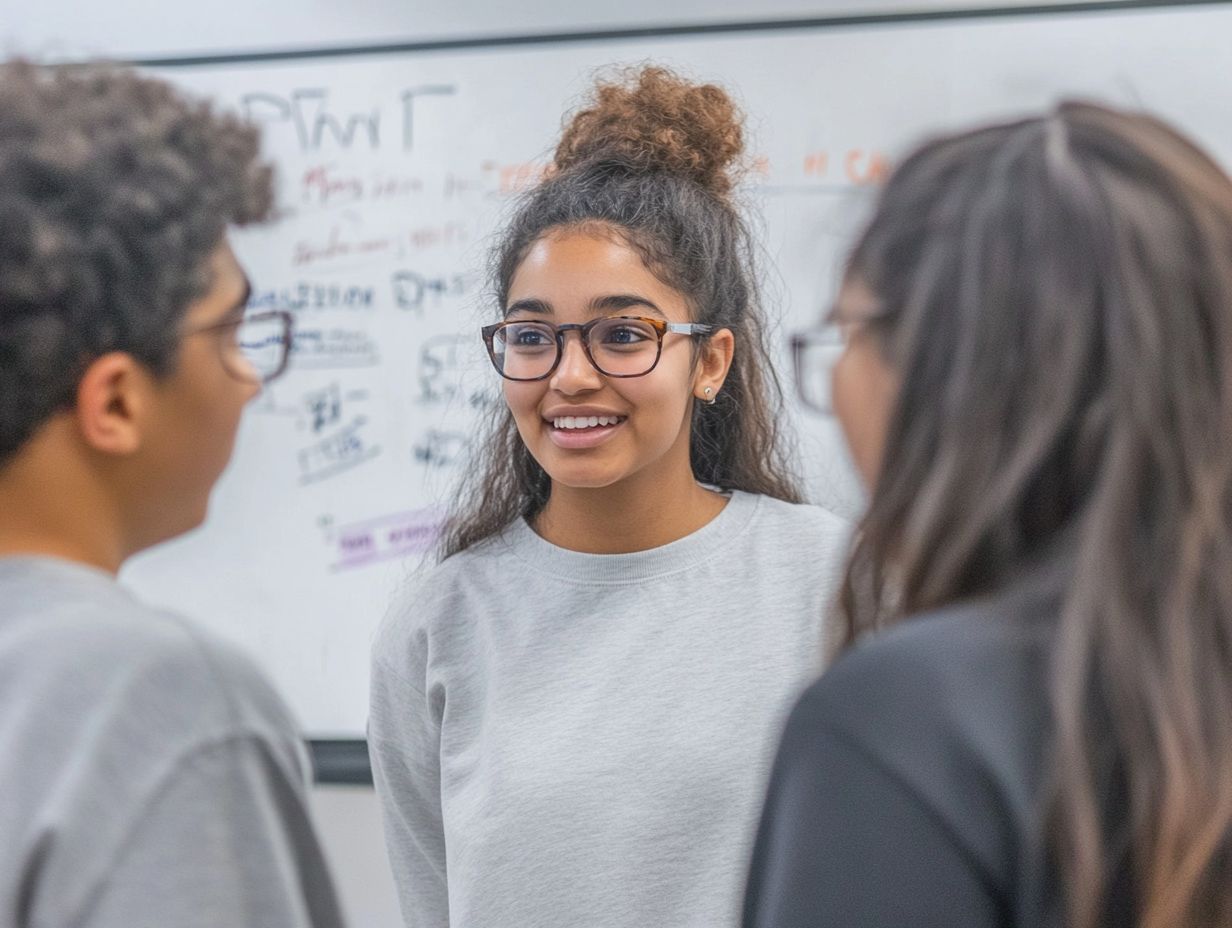
Making a strong impression during your scholarship interview is essential. By showing a positive attitude, demonstrating thorough preparation, and engaging thoughtfully with your interviewer, you effectively convey your potential as an ideal candidate for financial aid.
To elevate that initial impact, practicing a firm handshake and adopting confident body language can set a strong tone from the very beginning. Maintaining eye contact not only signals attentiveness but also fosters a connection with the interviewer.
It’s equally important to hone your active listening skills. This allows you to absorb the questions fully and respond thoughtfully, showcasing your genuine interest in the opportunity. By paraphrasing the interviewer s questions and taking a moment to reflect before answering, you ll demonstrate both understanding and critical thinking abilities, ultimately leaving a lasting, positive impression.
What Are the Possible Outcomes of a Financial Aid Interview?
The outcomes of a financial aid interview can vary widely, ranging from receiving a scholarship offer to landing on a waitlist or obtaining helpful feedback for future applications. Each of these results offers valuable insight into your eligibility for funding and financial aid support.
A scholarship offer signals that you ve showcased considerable merit or need, which can significantly lighten your financial load. On the other hand, being waitlisted indicates that you re a strong contender and there s room for you to enhance your profile for future funding opportunities.
Helpful feedback, while perhaps not what you hoped for, is truly invaluable. It pinpoints areas where you can improve, like boosting your academic performance or more effectively articulating your financial needs.
Grasping the implications of these outcomes gives you the power to strategically plan your next steps whether it s refining your applications, compiling additional documentation, or seeking mentorship for your ongoing development.
What Are the Next Steps After a Financial Aid Interview?
After your financial aid interview, it’s important to follow up with the scholarship provider to clarify any details regarding the next steps in the application process, including timelines for decisions and potential funding opportunities.
Following up is crucial. It s a vital chance to reaffirm your interest and commitment to the scholarship. Sending a thoughtful thank you note can leave a lasting positive impression and highlight the importance of maintaining ongoing dialogue.
You can generally expect to hear back within a few weeks. Act quickly to gather any requested documents to avoid delays.
Staying proactive will ensure a seamless transition as you navigate the financial aid offers that come your way.
Frequently Asked Questions
What are six essential tips for your financial aid interview?
The six essential tips for financial aid interviews are: be prepared, dress professionally, practice beforehand, be honest, showcase your strengths, and ask questions.
How can I prepare for a financial aid interview?
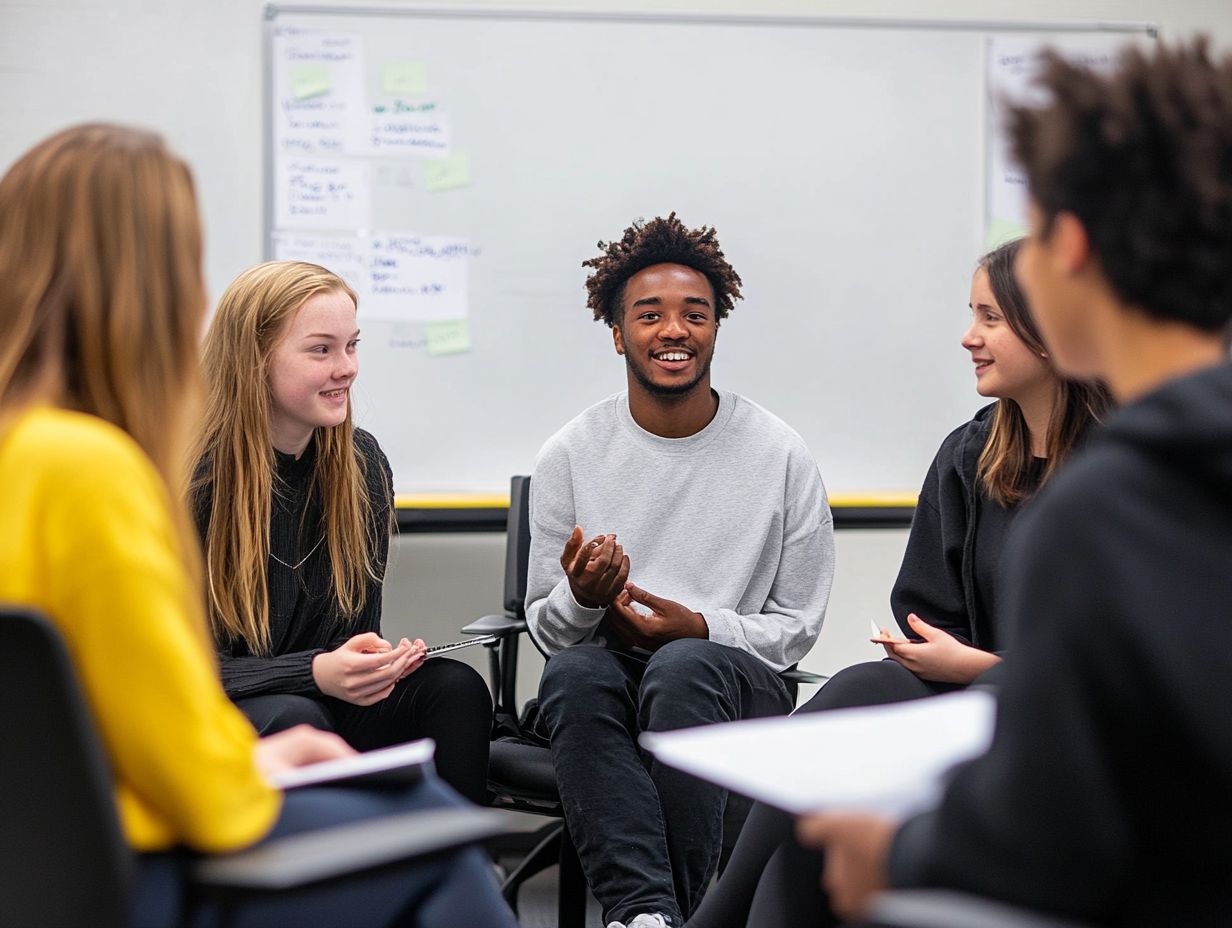
To prepare for a financial aid interview, you should research the organization, review common interview questions, and practice your responses.
Why is dressing professionally important for a financial aid interview?
Dressing professionally shows that you take the interview seriously and respect the organization. It also helps make a good first impression.
Is it important to practice beforehand for a financial aid interview?
Yes, practicing beforehand can help you feel more confident and prepared for the interview. It can also help you refine your responses and avoid any nervous behaviors.
Should I be honest during a financial aid interview?
Yes, honesty is always the best policy during an interview. Be truthful about your financial situation, goals, qualifications, and experiences.
What kind of questions should I ask during a financial aid interview?
During a financial aid interview, you can ask questions about the organization, the specific program or scholarship, and any concerns you may have about the application process. This shows your interest and engagement in the opportunity.


